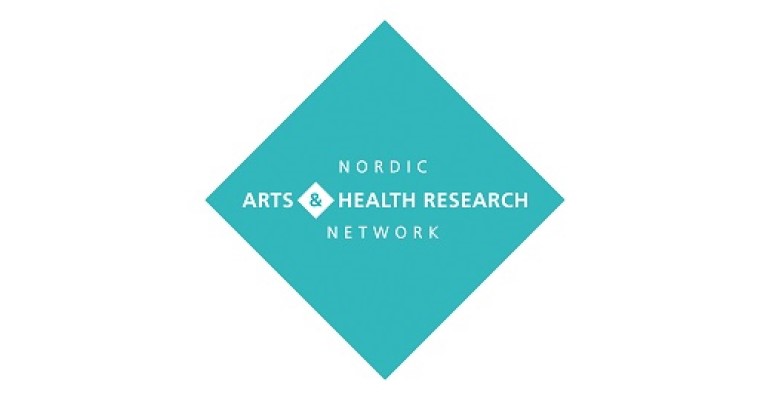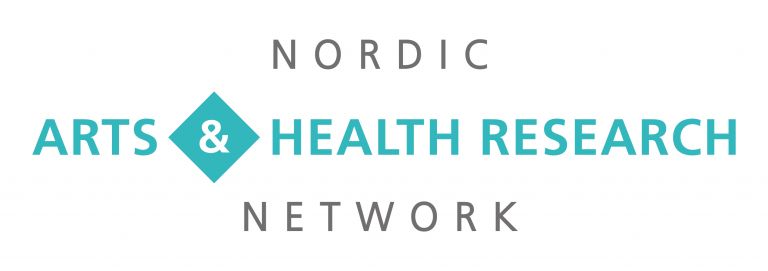Programme: Nordic Arts & Health Research Network meeting 7th – 8th June 2021 (online)

The Nordic Arts & Health Research Network organises their next network meeting 7th – 8th June 2021. The network meeting is organised online via Zoom with the theme Arts & Health Ethics.
We warmly welcome all network members to join the event with keynotes, presentations, workshops and networking opportunities together with your Nordic Arts & Health colleagues.
The programme starts both days at 9am (CET).
Sign up for the network meeting before 23rd May 2021: https://link.webropolsurveys.com/S/7C8A9EB4078DB07D
If you are not a member of the Nordic Arts & Health Research Network yet, please sign up here.
You can download the programme here.
Programme:
Monday 7th June
9.00 – 9.15 Welcome
9.15 – 10.15 Keynote: Töres Theorell: Ethical dilemmas encountered in arts and health research
Töres Theorell has served as professor in psychosocial medicine at the Karolinska Institute from 1995-2006. After retirement he has been a scientific consultant at the Stress Research Institute at the Stockholm University and he is also affiliated with the Royal College of Music in Stockholm. He is author or co-author of 476 titles in pubmed and with published books and book chapters his total number of publications exceeds 700. His research has been in the epidemiological and physiological aspects of diseases that are partly determined by psychosocial factors, such as cardiovascular and psychiatric diseases. Since the 1980s he has been involved in multiple studies on arts and health. Theorell has been a member of the Central Committee for Research Ethics in Stockholm.
Abstract: The presentation will be based upon questions that have been raised in arts and health research projects that I have been part of myself during 40 years. I will discuss research ethics as a researcher and as a previous member of the central research ethics committee in Stockholm. Crucial questions have for instance been the following: Is it ethically defendable to arrange cultural activities in one unit in a home for elderly and then make health comparisons between that unit and other units not offered such arrangements? Can results from arts and health research threaten arts activities that may not be good for health but are important for other reasons (arts for their own sake)? Where are the limits for persuading subjects who are unwilling to participate in arts for health projects? Such questions will be discussed from contrasting perspectives: Society, art producers, researchers and participants.
10.15 – 10.30 Break
10.30 – 10.45 Anita Jensen (Primary Healthcare, Region Skåne): Considering ’first, do no harm’ in arts and health
10.45 – 11.00 Lilli Mittner(UiT The Arctic University of Norway) & Karoline Dalby (UiT The Arctic University of Norway) & Rikke Gürgens Gjærum(UiT The Arctic University of Norway): Don’t mind the gap – dance with dementia!
11.00 – 11.15 Liisa Laitinen (Turku University of Applied Sciences): Mapping the ethical dilemmas of arts and health professionals – the perspective of microethics
11.15 – 11.25 Break
11.25 – 11.40 Sari Kuuva (University of Jyväskylä): Ethics in the study of the art of psychiatric patients
11.40 – 12.25 Co-creative ethics workshop
12.25 – 12.30 Summary of the day
Tuesday 8th June
9.00 – 9.15 Welcome
9.15 – 10.15 Keynote: François Matarasso: Travelling Well: The Ethics of Participatory Art
François Matarasso is a freelance community artist, writer and researcher. His 1997 report, ‘Use or Ornament?’, established influential concepts in cultural policy. Between 2011 and 2015 he produced a series of publications on undervalued areas of cultural life under the collective title “Regular Marvels”. His latest book “A Restless Art – How participation won and why it matters”, was published in 2019. He has worked in about 40 countries and held honorary professorships in the UK and Australia. He is a partner in Traction (2020-22) which is researching how technology can support opera co-creation and social inclusion.
Abstract: The creative co-operation of professional and non-professional artists produces unavoidable inequalities of power. How power is exercised, in for what purpose and in whose benefit is rarely easy to answer – especially if a project aspires to some degree of empowerment. Participatory art is fraught with complex ethical dilemmas, but it is a mistake to see them as problems to be solved in order to do the work. They are the work. It is in identifying, acknowledging and working through these restless choices that participatory art achieves its most important, and empowering results. François Matarasso will draw on his experience as a community artist and a researcher to set out some of these issues, and suggest some ways of approaching them, drawing in particular on the Traction project and its work with young prisoners and their families in Portugal.
10.15 – 10.45 Break & mingling in small groups
10.45 – 11.00 Annika Tammela (University of Jyväskylä): Qualitative ethnographic research and data management: problems of anonymization and Open Acces
11.00 – 11.10 Break
11.10 – 12.10 Saara Jäntti (University of Jyväskylä) & Riku Laakkonen (Tampere University): Slow Agencies and Fountain Effects of Participatory Art. A Critical Discussion
12.10 – 12.30 Summary of the day & next steps for the network
